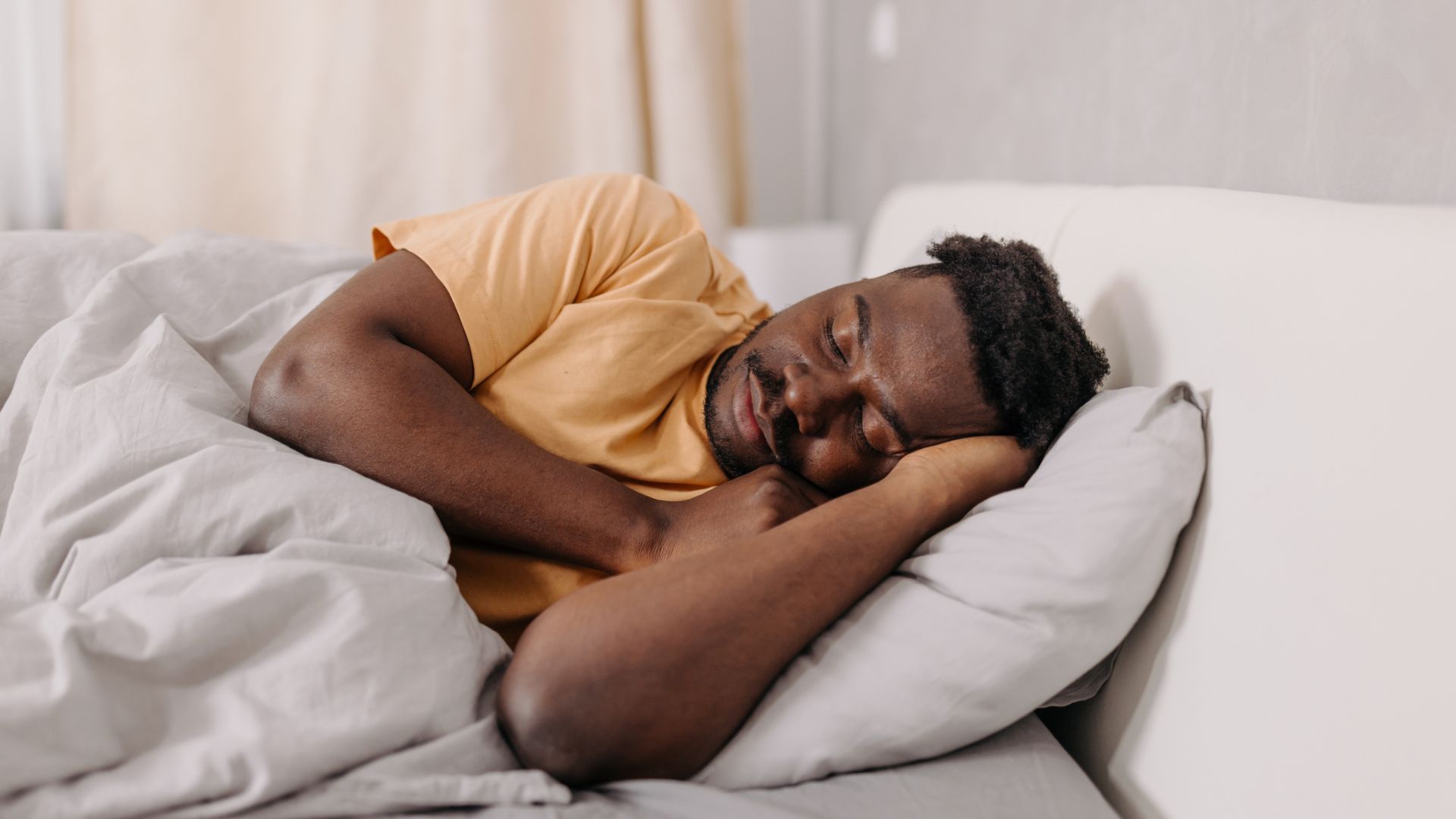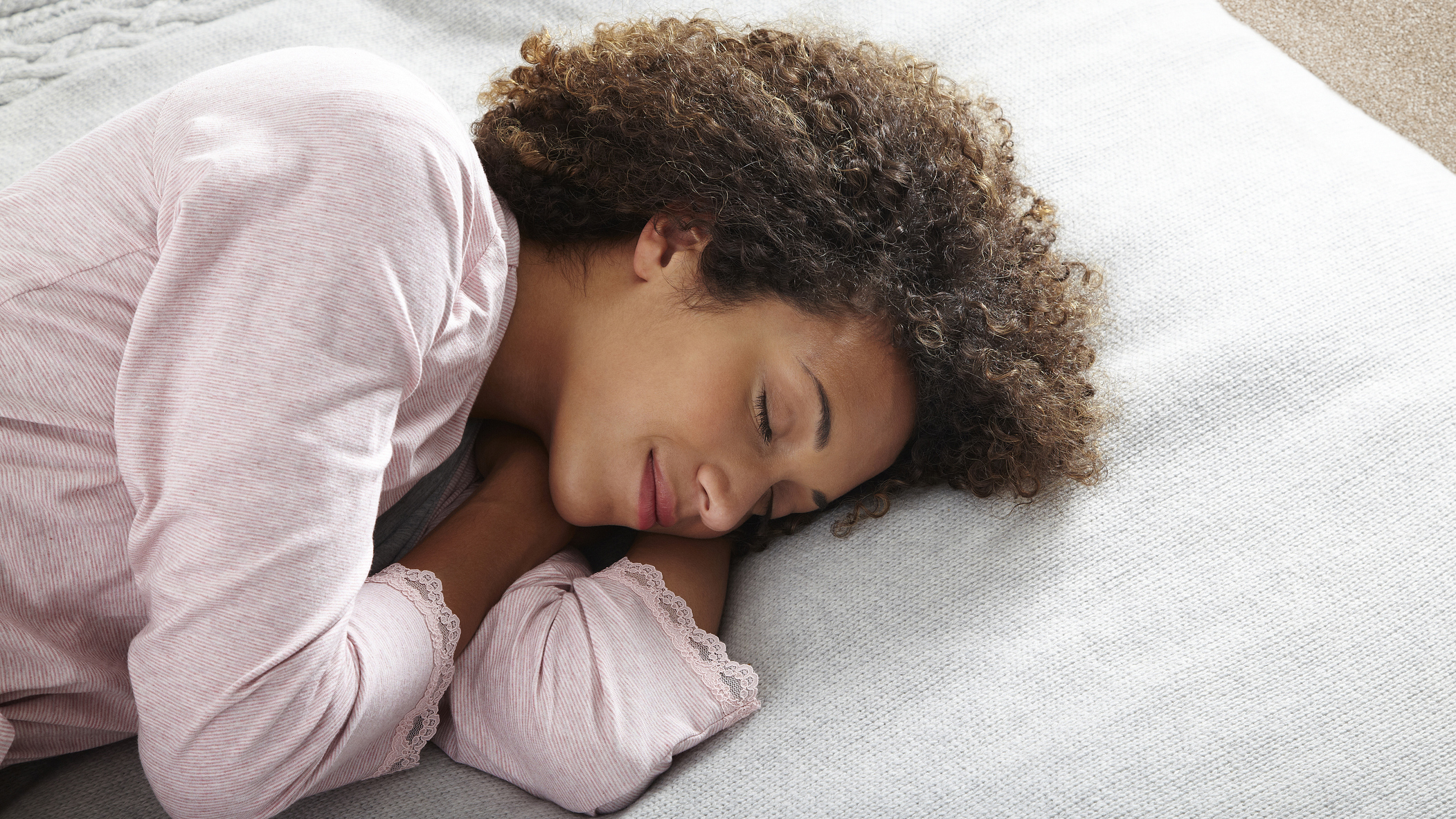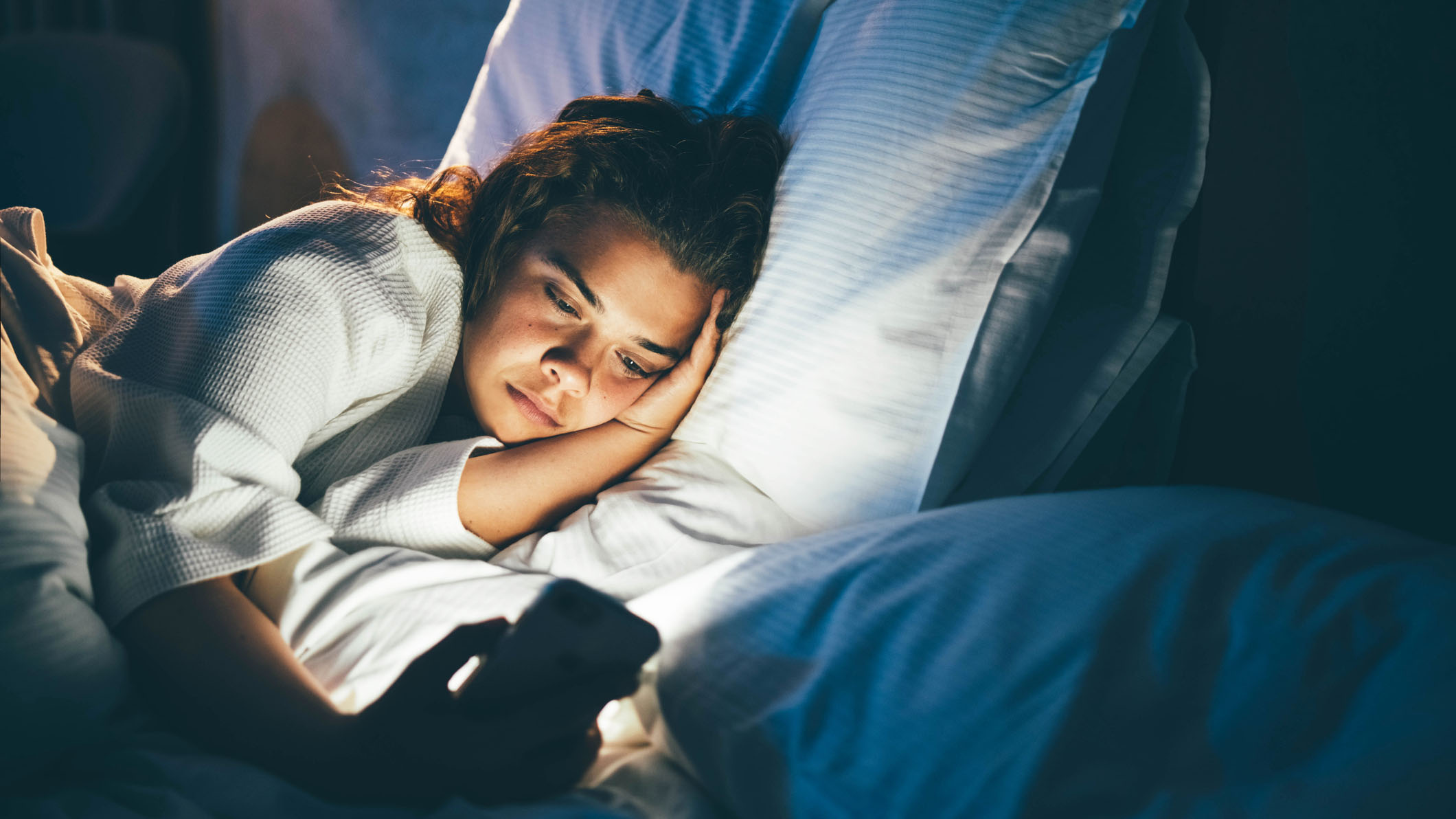How to get more deep sleep — 7 expert tips
Adequate deep sleep helps both brain and body restore — here's how to get more

Waking up after a good night's sleep can make you feel invincible — and that's usually because you've clocked up plenty of deep sleep. But what exactly is deep sleep, and how can you get more of it?
We go through four different sleep stages as we nod off, but spending enough time in deep sleep is hugely important to the replenishment of our bodies and mind. However, various factors can impact how much deep sleep we get every night.
Here we’ll take a closer look at what deep sleep is, how much we need and why deep sleep is so important to our overall health. Plus, from exercising more to cutting back on alcohol and prioritizing our overall nighttime comfort, we'll outline practical ways to get more deep sleep. If you are shopping for a new mattress to improve your sleep, our guide to the best mattresses of the year span budgets and sleep needs. But first, let's take a look at what deep sleep is and how to get more of it.
- The Saatva Classic drops to $995 in Labor Day sale — why it's still my top pick
- Do you lay in bed for hours yet can't sleep? 7 expert tips to falling asleep fast
- I didn’t realise how alcohol affected my sleep until I quit 3 weeks ago
- How to stop sleepwalking — 3 expert tips from a doctor
What is deep sleep?

Deep sleep, also referred to as N3, is one of four crucial sleep stages we cycle through as we snooze. Deep sleep allows the body and mind to repair themselves - while experts say we need around 1.5 - 2 hours of deep sleep per night to feel well-rested the next day.
“Deep sleep is the most restful state for your brain and body," says Julia Siemen, a sleep science coach. "During this state, your brain waves, breathing, body temperature, and heartbeat are at their lowest, allowing your body to restore and heal to its full extent.”
When we spoke to Dr Chris Winter, neurologist, sleep specialist, and Sleep Unplugged podcast host, on the subject of which of the four sleep stages is more vital than the rest, he explained that adequate deep sleep helps us feel alert.
“This stage is restorative, it's when our bodies release the most growth hormones and is the sleep that ensures we no longer feel sleepy when we eventually wake,” says Dr Winter.
What other types of sleep are there?
We cycle through four different stages of sleep, with each cycle lasting around 70 to 100 minutes. The four stages consist of very light, light and deep - these stages are also known as NREM (non-rapid eye movement) - while the last stage is REM sleep - this is the last stage where we tend to dream.
“Stage 1 is the very light sleep as we fall asleep, stage 2 is where we spend most of the nights sleep and stage 3 is the deep slow wave sleep (SWS),” explains Nicole Ratcliffe, a Sleep Coach.
Sign up to get the BEST of Tom's Guide direct to your inbox.
Get instant access to breaking news, the hottest reviews, great deals and helpful tips.
“REM is the dream sleep where our brain is most active, but our bodies are virtually paralysed, (bar eyes and muscles that control breathing), which is thought to be to stop us acting out our dreams.”
These are the four stages of sleep:
- Stage 1: Very light sleep - this is when you fall asleep
- Stage 2: Light sleep
- Stage 3: Deep Sleep
- Stage 4: REM sleep
Why do we need deep sleep?
Getting enough deep sleep not only helps us feel more alert the next day but can physically restore our bodies too — one study last year even explore the link between adequate deep sleep and dementia.
Ratcliffe explains that deep sleep is the restorative sleep where your body is healing. “Deep sleep is vital for good physical health. While in deep sleep our immune system is restored, growth hormones are released, cells are regenerated, and muscle tissue is repaired.
“The first half of the night, which is predominantly deep sleep, is where the hormone leptin is released which regulates our appetite. Without deep sleep, we are more susceptible to illnesses, take longer to recover from injuries and ill health and weight gain.”
How to get more deep sleep — 7 expert tips
1. Remove screens one hour before bed

It’s easy to get into the habit of checking your phone just before you go to bed or binge-watching the latest Netflix show, but blue light from technology can affect the release of a hormone called melatonin, which helps us fall to asleep - and affect how long we sleep deeply for. Ratcliffe advises: “Remove screens at least 1 hour before bed, but if this doesn’t feel possible, turn the blue light off your devices.”
2. Create a consistent sleep schedule
Going to bed at the same time every night, and waking up at consistent times, even on the weekends, will help regulate your sleep cycle. This will help you fall asleep quicker and cycle through the different stages of sleep more effectively — including deep sleep.
Siemen explains that creating a routine will help your body ease into sleep quicker. “Establish a nighttime routine to unwind before bed that includes things that are relaxing to you. Some ideas include taking a bath, journaling, or having hot [herbal] tea.”
6. Avoid (or drink less) alcohol

Studies show that even drinking 2 or 3 alcoholic drinks before you sleep will affect your sleep quality - this is because it disrupts both your deep and REM sleep. Ratcliffe explains: “On nights where you want to get quality sleep, avoid alcohol completely, even if you get 8 hours sleep, due to the change in sleep architecture after drinking alcohol, you can still wake up feeling tired.”
4. Clear your mental load
We’ve all laid awake at night worrying about a work or personal problem - normally beyond our control. Ratcliffe explains that clearing our mental load before we even slip into bed will help us ease anxieties.
“This could be writing down your to-do list for the next day, to get it out of your head, or setting your work boundaries and avoiding working outside of them,” she advises.
5. Create a comfortable sleep environment
Your body is clever. If you’re uncomfortable or distracted it won’t fall into a deep sleep, so your sleep environment is important. If you need to invest in new bedding, such as a pillow or a new mattress, make it a priority.
Siemen agrees, explaining that you should choose “bedding that fits your sleep needs” - she adds that a good sleep environment should allow for “natural light in the morning and night, and keeping your bedroom at a cool and comfortable temperature.”
6. Increase your daily exercise

Ratcliffe explains that: “Physical activity such as exercise is good for promoting deep sleep.” This is because it helps to regulate your circadian rhythm, while a release of endorphins can help your blood pressure drop when you’re hoping to nod off. Avoid heavy exercise at night though and instead opt for more calming workouts such as yoga.
7. Get the temperature right
When it comes to getting adequate deep sleep, the temperature of your bedroom is hugely important. According to a study from last year, the best temperature for sleeping is between 20 and 25 °C (68 and 77 F.
Although your body temperature fluctuates throughout the day, it tends to drop as you prepare for sleep. To mimic this natural drop in temperature, Ratcliffe recommends having a warm bath or shower. “A warm shower before getting into bed can help lower the body temperature, this helps to enable sleep."
If overheating is an issue for you, consider investing in a decent cooling mattress. Our guide to best cooling mattresses span sleep needs and budgets, but all help keep temperatures regulated throughout the night.
Sarah is a freelance writer who has been published across titles including Woman & Home, The Independent, and the BBC. Sarah covers a variety of subjects, including health and wellness. For Tom's Guide Sarah often writes about sleep health and hygiene, and interviews leading sleep experts about common issues such as insomnia and sleep deprivation.

